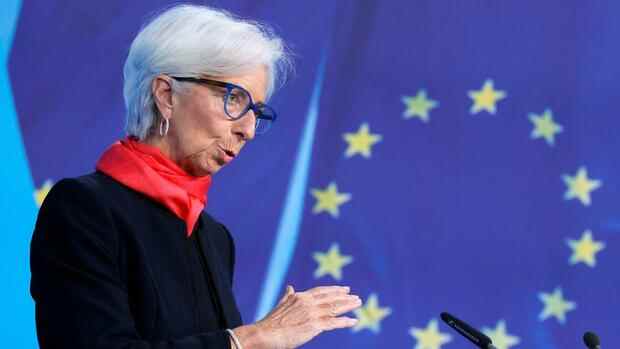If Lagarde sticks to her soothing attitude at the Council meeting on Thursday, the ECB will have a credibility problem.
(Photo: Getty Images)
Dusseldorf Anyone who looks at the rhetoric of the head of the ECB over the past six months cannot help but get the impression that a political mission is driving Christine Lagarde’s monetary policy agenda.
As far as the dangers of inflation are concerned, the presidents only ever admitted what was absolutely necessary. And even after economists and other central bankers had long been warning of a sustained trend reversal in price developments, Lagarde clung to her overused phrase that it was a “temporary phenomenon”.
The euro inflation data from January show once again that this attitude is no longer tenable. 5.1 percent – again well above ECB expectations. Another record. And above all not the turning point that is often prophesied, although the German VAT effect was eliminated at the beginning of the year.
If Lagarde sticks to her soothing attitude at the council meeting on Thursday, the central bank will have a credibility problem. And trust in the central bank is a necessary prerequisite for keeping inflation expectations under control, which are so important. If citizens think inflation is coming, it will.
Top jobs of the day
Find the best jobs now and
be notified by email.
A clear statement on how to fight inflation from the ECB is therefore long overdue. Yes, Lagarde has indicated that it will scale back bond purchases. Anything else would not have been justifiable in view of the current inflation situation and a balance sheet total of 8.6 trillion euros. That corresponds to 72 percent of the economic output of the currency area, the US Federal Reserve comes to just a third of GDP. And the ECB is now by far the largest creditor of the euro countries.
Where the central bank can buy at will
What the President talks less about, however, is that, as a precaution, the Council decided in December to completely replace the bonds that the ECB bought as part of the Corona Purchase Program (PEPP) and that will mature before 2024 with new purchases. This is called precautionary measures in the event that the pressure ultimately becomes too great to switch from crisis to normal mode. At least faster than the President would like. This is about those purchases that the ECB has been making on its own, without being guided by the capital key, since the outbreak of the pandemic.
This means that the central bank can buy government bonds almost at will from countries that are dependent on long-term low capital market interest rates due to particularly high government debt.
This also fuels the suspicion that the ECB, unlike the US Federal Reserve, is not really free in its decisions. In the end, the ECB could actually be faced with the alternative of either saving the euro or fighting inflation. A situation that a central bank must never get into.
More: Inflation in the euro area rises to a record high – investors are betting on a rate hike
